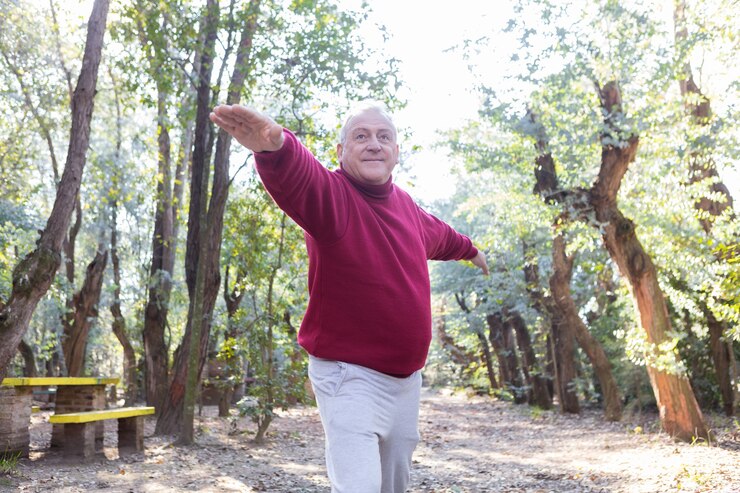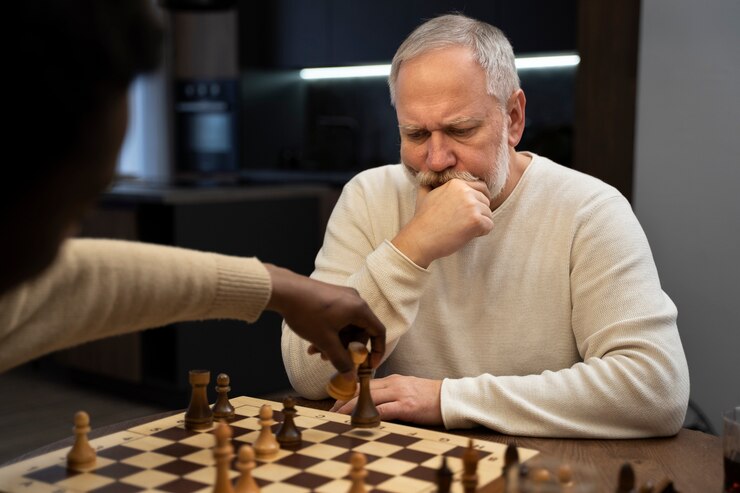The Secret to Longevity: Uncommon Health Tips for Seniors

Aging is an inevitable part of life, but how we age is, to a large extent, within our control. For seniors between the ages of 45 and 75, maintaining good health and extending longevity is more than just about regular checkups and medication; it’s about adopting a holistic approach that goes beyond the obvious. While we all know the basics—exercise, eat healthy, and get enough sleep—there are lesser-known yet powerful tips that can significantly boost your health and increase your lifespan. Here are some uncommon health strategies that could make all the difference in your golden years.
1. Embracing Mindful Eating

One of the most underrated secrets to longevity is mindful eating. It’s not just about what you eat, but how you eat. Mindful eating involves being fully present during meals, savoring each bite, and paying attention to your body’s hunger and fullness cues. This approach can improve digestion, prevent overeating, and help manage weight.
When you eat slowly and savor your food, you give your brain time to register that you’re full, which can prevent overeating. This practice also helps you enjoy your meals more, making them a fulfilling experience rather than a rushed necessity. For seniors, mindful eating is particularly important, as metabolism slows with age, and it’s easy to lose track of portion control.
Practical Tips:
- Avoid eating in front of the TV or while using your phone.
- Take small bites and chew thoroughly.
- Focus on the taste, texture, and aroma of your food.
2. Harnessing the Power of Adaptogens

Adaptogens are herbs and plants that help the body adapt to stress and restore balance. These powerful natural substances can profoundly impact longevity by reducing the harmful effects of chronic stress, improving energy levels, and supporting the immune system—three key factors for seniors.
Examples of Adaptogens:
- Ashwagandha: Known for reducing anxiety and stress while boosting overall vitality.
- Rhodiola Rosea: A natural energy booster that helps fight fatigue and supports cognitive function.
- Holy Basil: Known as the “Queen of Herbs,” it’s a powerful anti-inflammatory agent that helps the body adapt to physical and emotional stress.
How to Incorporate Adaptogens:
- Add adaptogen powders to your smoothies or teas.
- Take supplements, but consult with your doctor first.
- Use adaptogens in cooking, such as adding holy basil to soups and stews.
3. Exploring New Forms of Exercise

While regular physical activity is crucial, it doesn’t always have to mean hitting the gym or running. Unconventional forms of exercise, especially those focusing on balance, flexibility, and coordination, can be incredibly beneficial for seniors. These exercises can help prevent falls, improve mobility, and keep the mind sharp.
Uncommon Exercise Options:
- Tai Chi: A gentle form of martial arts that improves balance, flexibility, and mental focus. It’s particularly beneficial for seniors who want to maintain mobility while minimizing joint strain.
- Aqua Aerobics: Exercising in water reduces the impact on joints while providing resistance, making it a perfect choice for seniors with arthritis or mobility issues.
- Dance Therapy: Dancing keeps your body fit and improves coordination, boosts mood, and keeps your brain engaged.
How to Get Started:
- Look for local senior classes in Tai Chi or dance.
- Try online tutorials or join a community group.
- Begin slowly and increase intensity as you gain confidence.
4. Nurturing Social Connections

Strong social connections are often overlooked as a health factor, but studies consistently show that maintaining social engagement can reduce the risk of dementia, depression, and even cardiovascular disease. Loneliness and social isolation, on the other hand, have been shown to shorten lifespan significantly.
Uncommon Ways to Connect:
- Join or Start a Club: Whether it’s a book club, gardening group, or fitness circle, being part of a community with shared interests can create lasting friendships.
- Volunteer: Giving back to your community provides a sense of purpose and helps build meaningful relationships.
- Engage in Intergenerational Activities: Spending time with younger generations, such as volunteering at a school or mentoring youth, can provide fresh perspectives and maintain cognitive agility.
5. Prioritizing Sleep Quality

Sleep is a cornerstone of good health, but many seniors struggle to get enough rest. While the usual advice focuses on getting 7-9 hours of sleep, improving sleep quality is equally important for longevity. Poor sleep is linked to a host of health issues, including heart disease, memory problems, and a weakened immune system.
Uncommon Tips for Better Sleep:
- Create a Sleep Sanctuary: Optimize your bedroom for sleep by using blackout curtains, keeping the room cool, and eliminating noise.
- Progressive Muscle Relaxation: This simple technique involves tensing and relaxing different muscle groups, which can calm the mind and body and promote better sleep.
- Consider a Sleep Study: If you’re waking up frequently or not feeling rested, a sleep study can diagnose conditions like sleep apnea, which can severely impact your health if left untreated.
6. Engaging in Cognitive Challenges

Keeping your brain sharp is just as important as maintaining physical health. Regular mental stimulation can reduce the risk of cognitive decline, memory loss, and diseases like Alzheimer’s. Challenge your brain with new and complex activities instead of sticking to crossword puzzles or Sudoku.
Unconventional Cognitive Activities:
- Learn a New Language: Studies have shown that learning a second language can delay cognitive decline.
- Pick Up a Musical Instrument: Playing an instrument requires multiple areas of the brain to work together, making it an excellent mental workout.
- Strategy-Based Games: Engage in games that require critical thinking and planning, such as chess or bridge, to keep your mind sharp.
7. Exploring Alternative Therapies

While Western medicine is effective, many seniors are turning to alternative therapies to complement their traditional treatments. These therapies can offer natural solutions to managing pain, stress, and inflammation, contributing to overall well-being and longevity.
Examples of Alternative Therapies:
- Acupuncture: This ancient practice can help with pain management, stress relief, and digestive health.
- Aromatherapy: Essential oils like lavender and eucalyptus can promote relaxation, enhance mood, and improve sleep.
- Herbal Remedies: Natural herbs such as turmeric (for inflammation) and ginkgo biloba (for brain health) are becoming increasingly popular for their health-boosting properties.
8. Maintaining a Positive Attitude

Lastly, the power of positivity should not be underestimated in longevity. Research has shown that maintaining a positive outlook can lead to better health outcomes, lower stress levels, and increased lifespan.
Uncommon Practices for Positivity:
- Gratitude Journaling: Writing down three things you’re grateful for each day can help you shift your focus from what’s wrong in your life to what’s right.
- Laughter Therapy: Incorporate humor into your life by watching comedies, reading funny books, or joining a laughter yoga class.
- Develop a Sense of Purpose: Whether pursuing a hobby, volunteering or setting new goals, having a sense of purpose can keep you motivated and mentally healthy.
Conclusion
Longevity isn’t just about living longer; it’s about living better. By incorporating these uncommon health tips into your daily routine, you can enhance not only the length of your life but also its quality. From mindful eating and adaptogens to social connections and alternative therapies, there are countless ways to embrace healthier aging. Take a proactive approach to your health and experiment with these practices today. Your future self will thank you.





